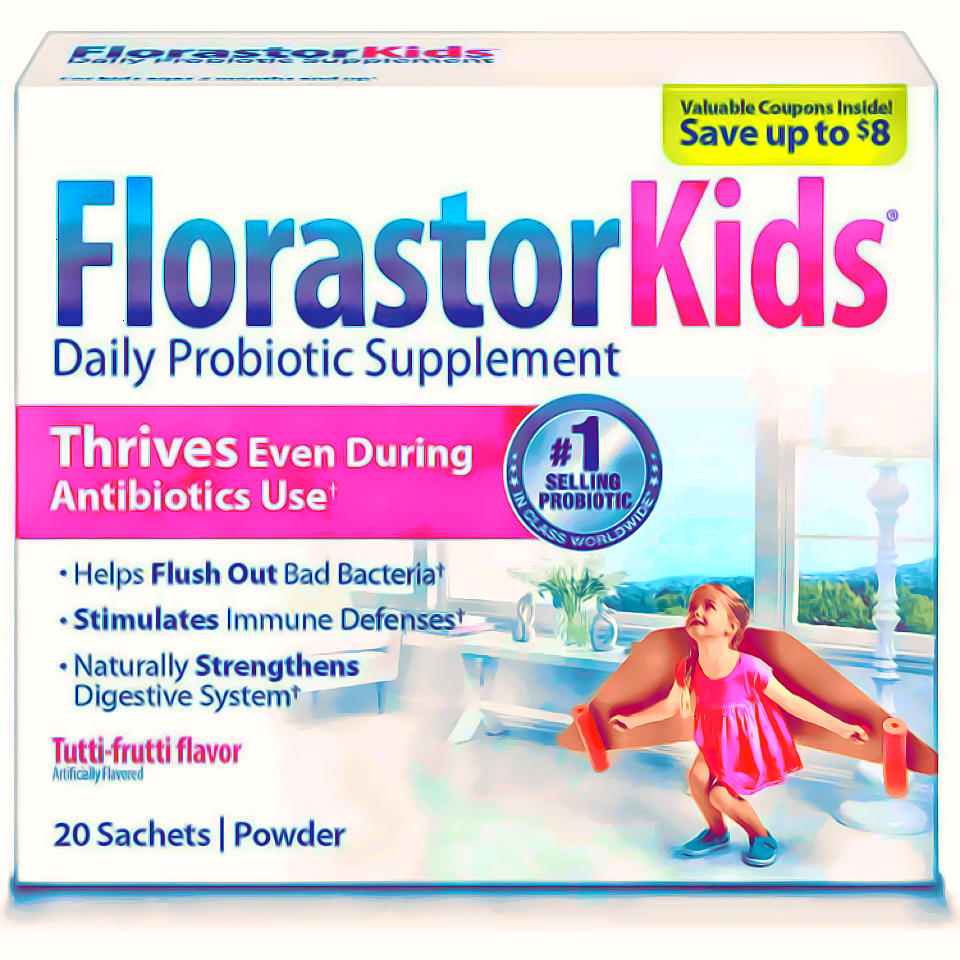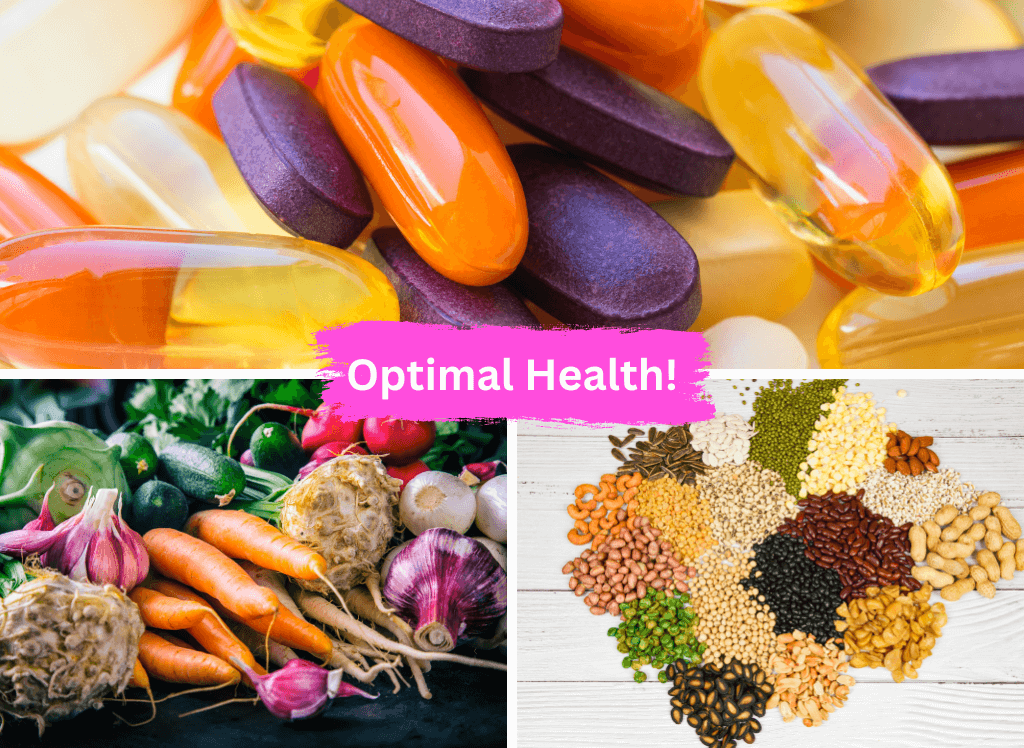As a parent, you want to do everything you can to ensure your child's health and well-being. One way to help support their health is by giving them probiotics. Probiotics are beneficial bacteria that help keep the gut healthy. There are many different types of probiotics available, so it can be tough to know which one is right for your child. In this blog post, we'll discuss the best probiotics for kids and provide some tips on how to choose the right one.
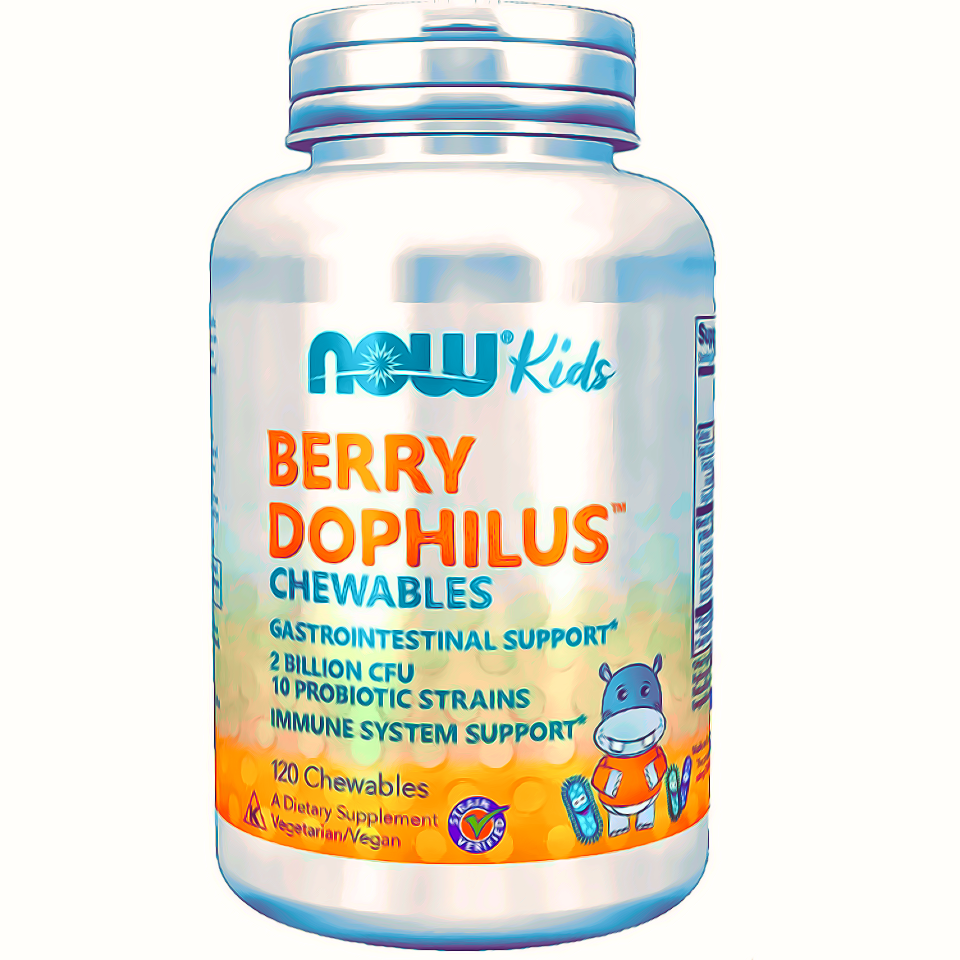
NOW Supplements, BerryDophilus
Strain-Verified Product with 10 Probiotic Strands
Great Things About This Product
NOW Supplements, BerryDophilus™ with 2 Billion, 10 Probiotic Strains, Xylitol Sweetened, Strain Verified, 60 Chewable tablets, packaging may vary is a great probiotic supplement for kids.
It is a GMP Quality Assured product and is also packaged in the USA by a family-owned and operated company. This product is great for kids because it contains 10 probiotic strains and is xylitol sweetened. It is also a strain-verified product, which means that the manufacturing process has been closely examined to ensure quality and potency.

Good Things to Know
NOW Supplements, BerryDophilus is also great for adults who are looking for a high-quality probiotic supplement.
Pros
- Easy to chew
- Budget-friendly
- Cons
- Some families may find it difficult to store because it requires refrigeration
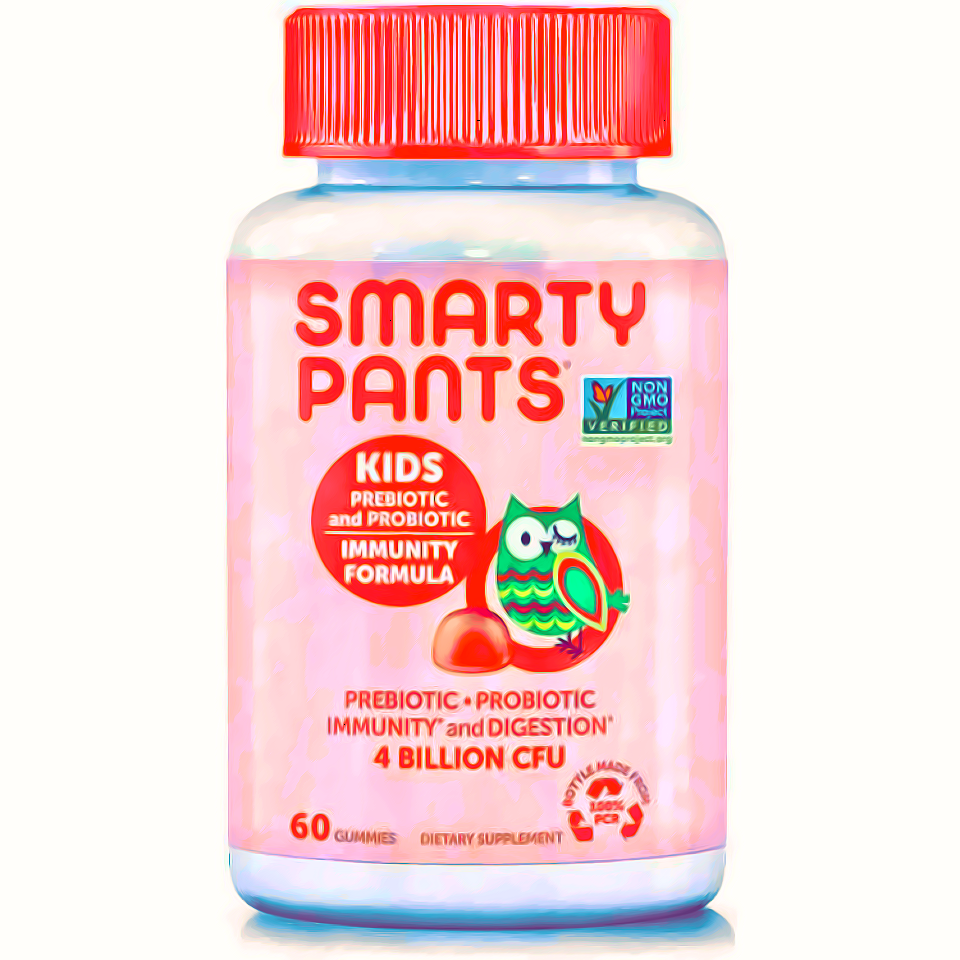
Smartypants Kids Probiotic Immunity Gummies
Great Kids Prebiotic and Probiotic
Great Things About This Product
One of the best probiotics for kids is SmartyPants Kids Probiotic Immunity Gummies. These gummies are formulated with prebiotics and probiotics to boost immunity and support digestive health.
They are also non-GMO, vegan, and free of gluten, gelatin, milk, eggs, shellfish, soy, peanut, wheat, fish, and tree nuts. Additionally, they do not require refrigeration.
For children 3 years of age and older, the recommended dosage is two probiotic gummies per day.
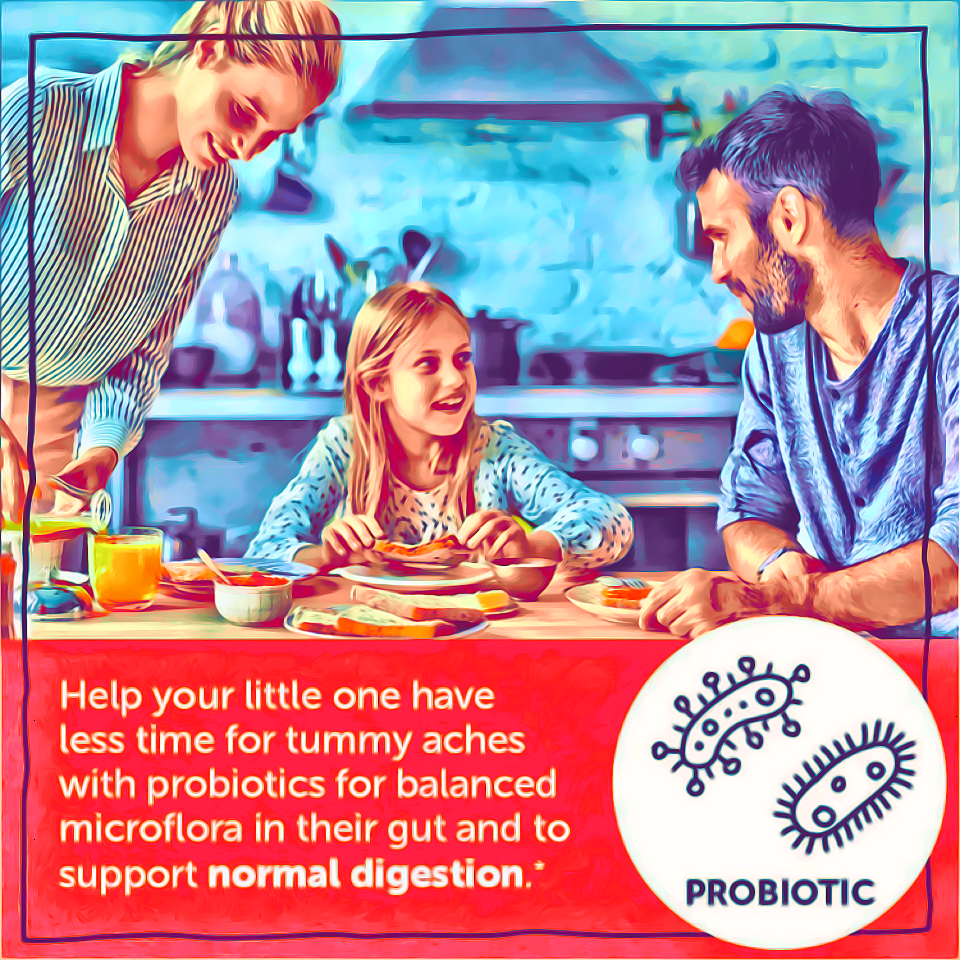
Good Things to Know
SmartyPants Kids Probiotic Immunity Gummies are a great option for kids because they are easy to take and provide numerous health benefits. If you are looking for a probiotic supplement for your child, this is one of the best options on the market.
Pros
- Shelf-stable
- Artificial sweeteners are not used
Cons
- Contains added sugar
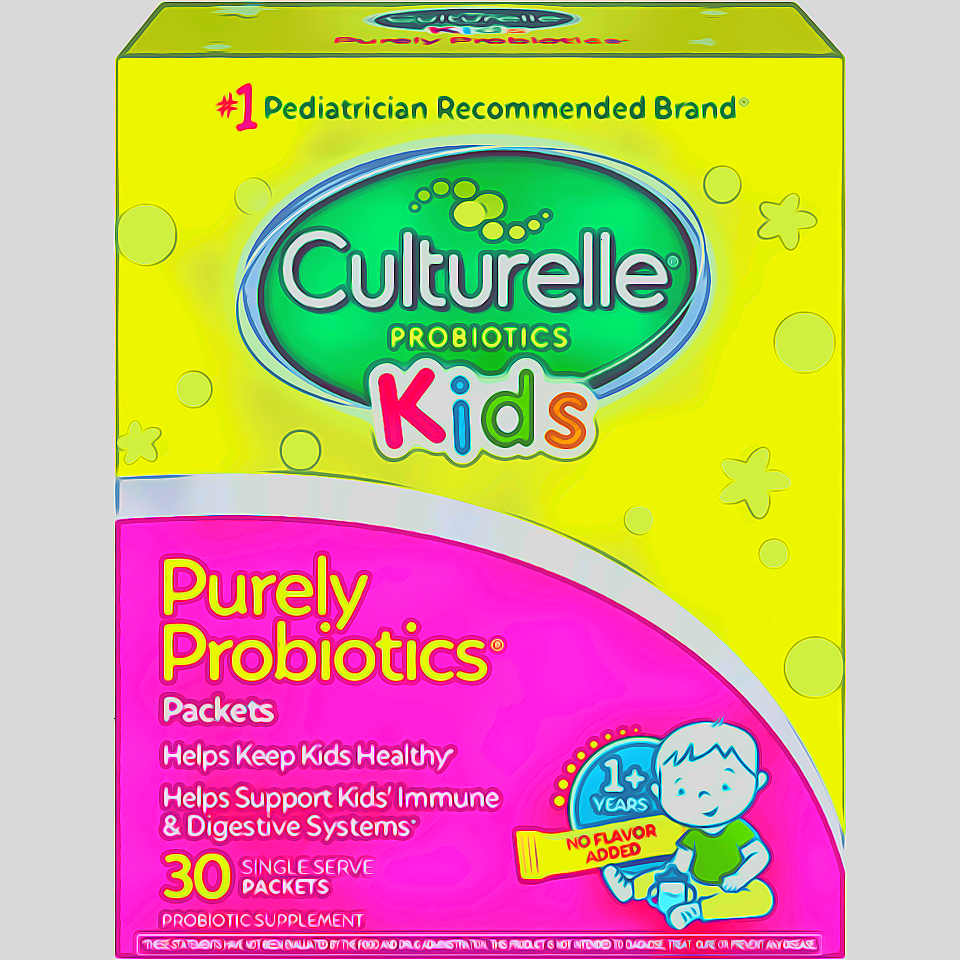
Culturelle Kids Packets Daily Probiotic Supplement
Great for Reducing Occasional Tummy Troubles
Great Things About This Product
Culturelle Kids Packets are a great way to help support gut health. The key ingredient, Lactobacillus rhamnosus GG, is clinically proven to help reduce occasional tummy troubles, including diarrhea and occasional digestive upset.
Culturelle Kids Daily Probiotic Packets help your child’s digestive tract to work better and support a healthy immune system when taken regularly.
They are also easy for your little ones to take, and are free of gluten, dairy, lactose, milk, added colors, preservatives, yeast, and soy.
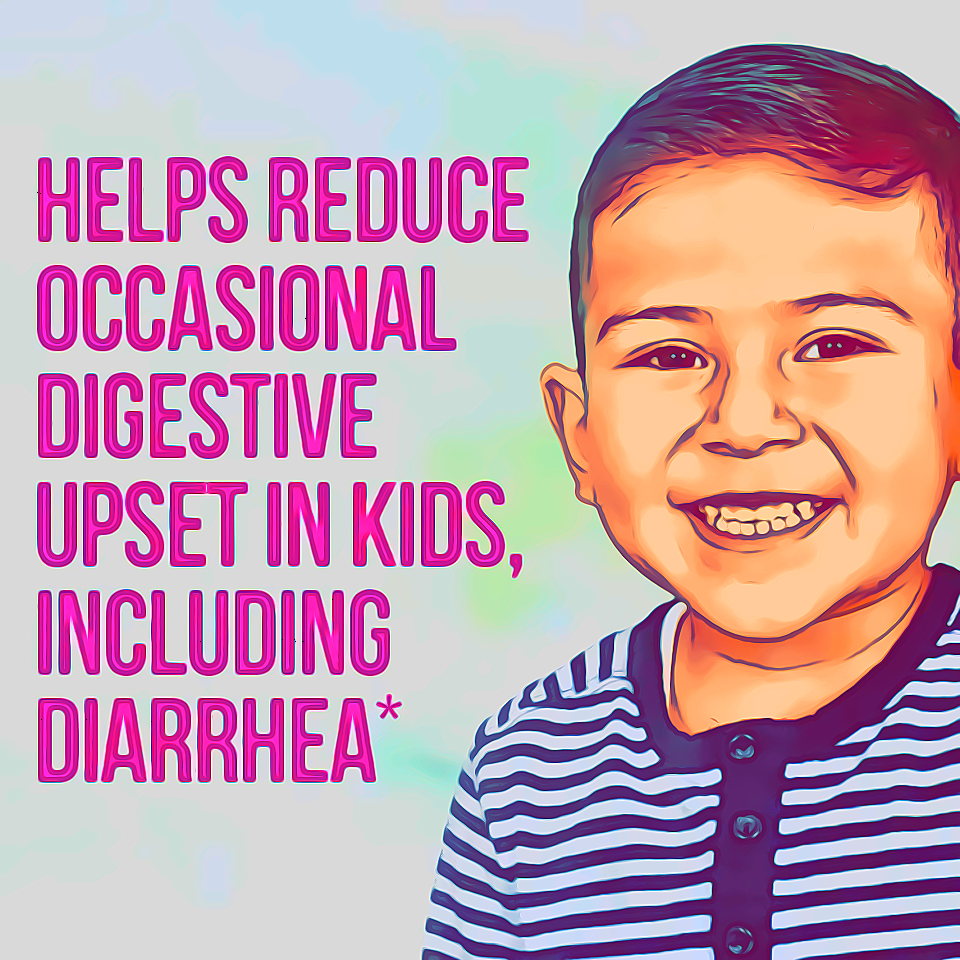
Good Things to Know About Culturelle Kids Packets Daily Probiotic Supplement
Rest asure that during the summer months, Amazon stores and ships products in accordance with manufacturers' recommendations when provided. So you can be sure your child is getting the probiotic support they need all year round!
Pros
- Shelf-stable
- Free of many allergens
Cons
- Relatively expensive
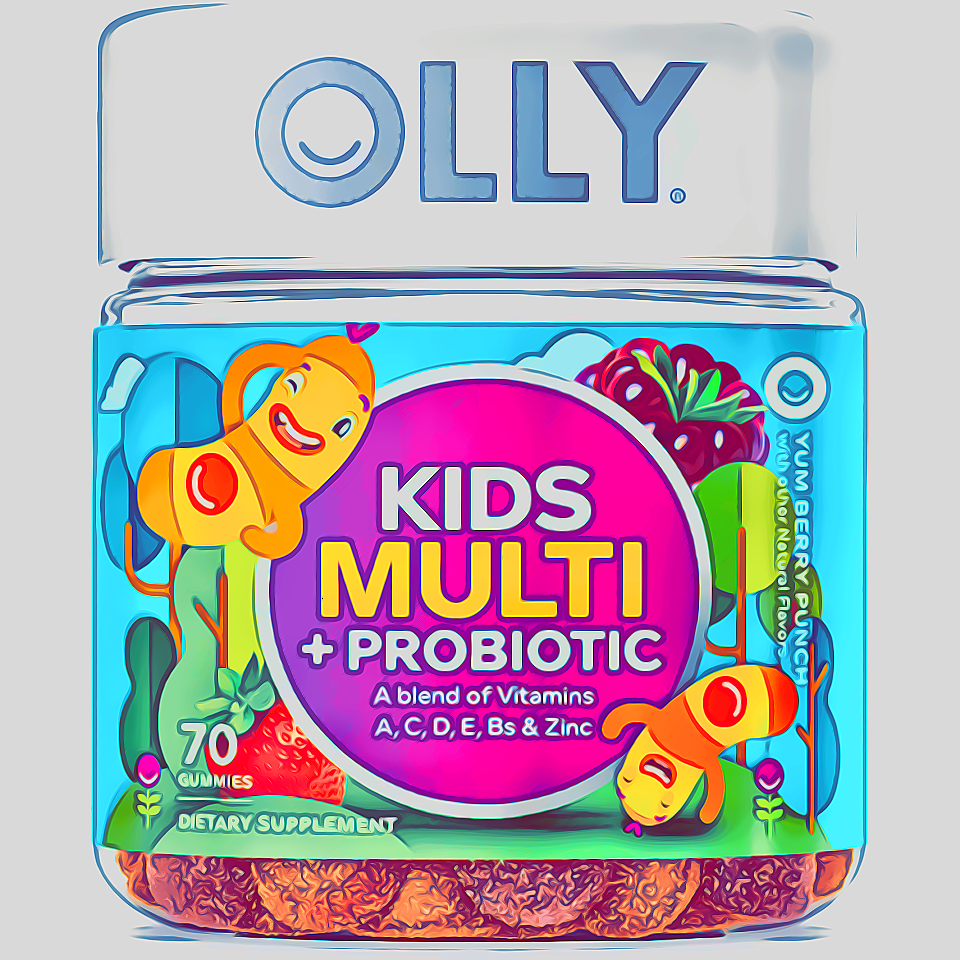
OLLY Kids Multivitamin + Probiotic Gummy
Great Multivitamin + Probiotic all in One!
Great Things About This Product
OLLY Kids Multivitamin + Probiotic Gummy is packed with essential vitamins and minerals, plus a boost of probiotics, to help little bodies thrive.
The chewable daily vitamins support overall wellness and help fill nutritional gaps. Additionally, this kid's vitamin delivers a blend of Vitamins A, C, D, E, Bs, and Zinc plus a super dose of probiotics to help support healthy belly bacteria and a strong immune function.
The gummies are naturally flavored and made with no artificial colors or flavors. They are also gluten-free.
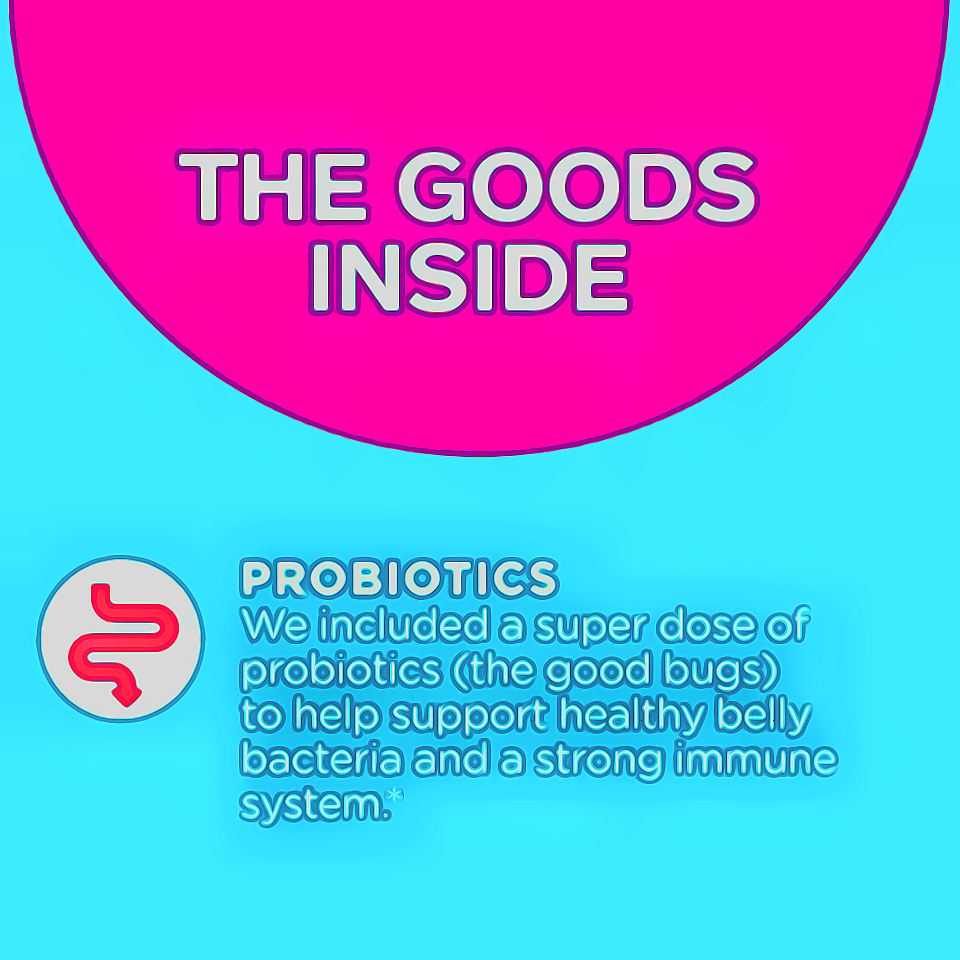
Good Things to Know
OLLY Kids Multivitamin + Probiotic Gummies are easy to take. The recommended doseage is 2-3 years, chew one gummy daily, 4 years and up, chew two gummies daily, 70 gummies per bottle. No food or water is needed to take gummies.
Pros
- Contains no artificial ingredients
- Shelf-stable
Cons
- CFU count is lower than other products
- Single-strain
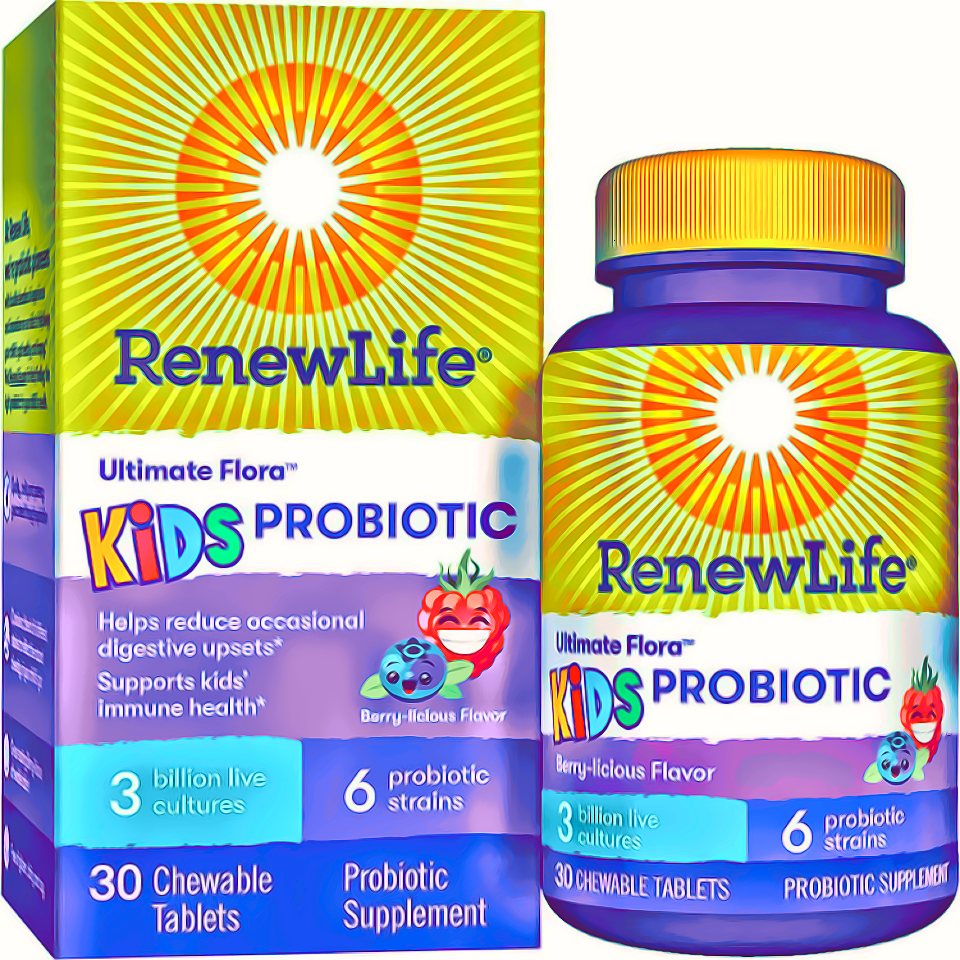
Renew Life Probiotics for Kids
Contains 3 Billion Cultures and 6 Specially Selected Strains!
Great Things About Renew Life Probiotics for Kids
There are many different types of probiotics available on the market, so how do you know which one is best for your child?
Renew Life Probiotics for Kids is a high-quality probiotic supplement that contains 3 billion cultures and 6 specially selected strains to help reduce occasional digestive upsets and support a healthy digestive system.
Made in the USA with global ingredients, this probiotic for kids is also gluten, dairy, and soy free. Plus, it comes in a delicious Berry-Licious flavor that your kids will love!
These statements have not been evaluated by the Food and Drug Administration. This product is not intended to diagnose, treat, cure or prevent any disease.
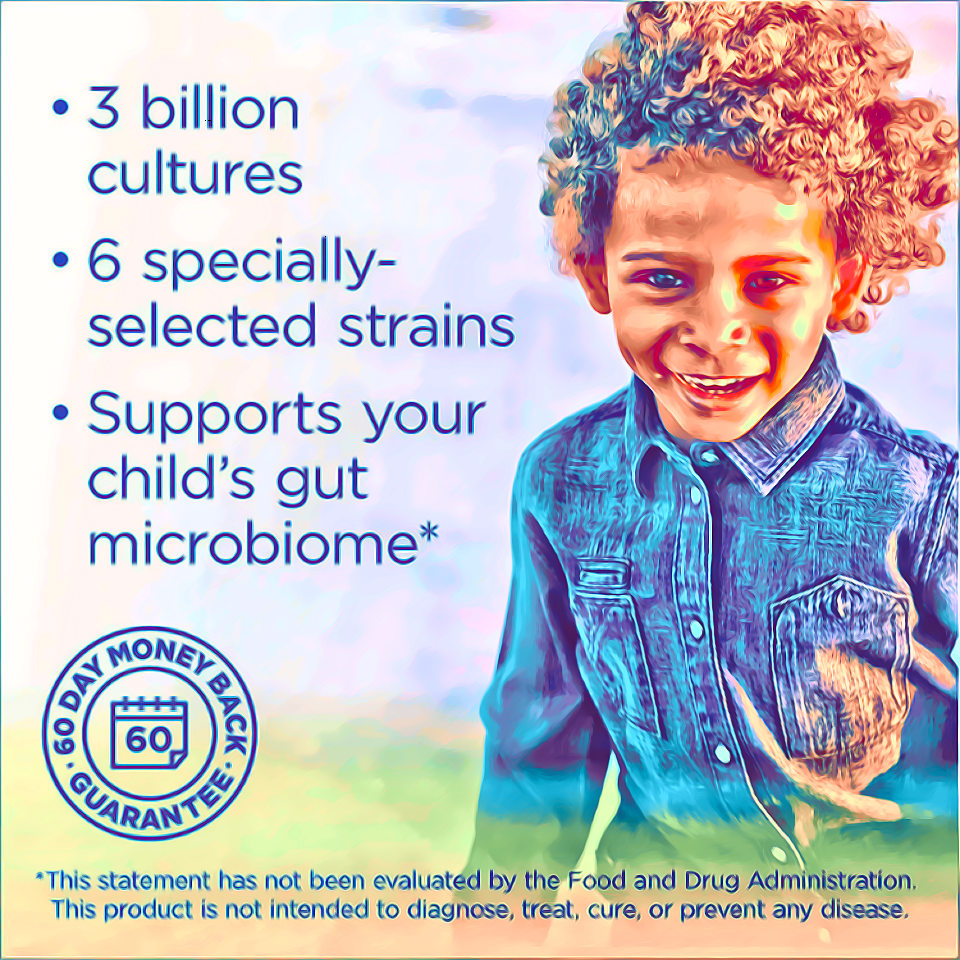
Good Things to Know
When it comes to probiotics for kids, quality is important. Renew Life Probiotics for Kids is guaranteed for quality, purity, and potency through expiration. Plus, it does not require refrigeration, so you can take it with you on the go. Simply store it in a cool, dry place.
Pros
- Shelf-stable
- Budget-friendly
- Free of gluten
Cons
- There have been some negative reviews about the taste
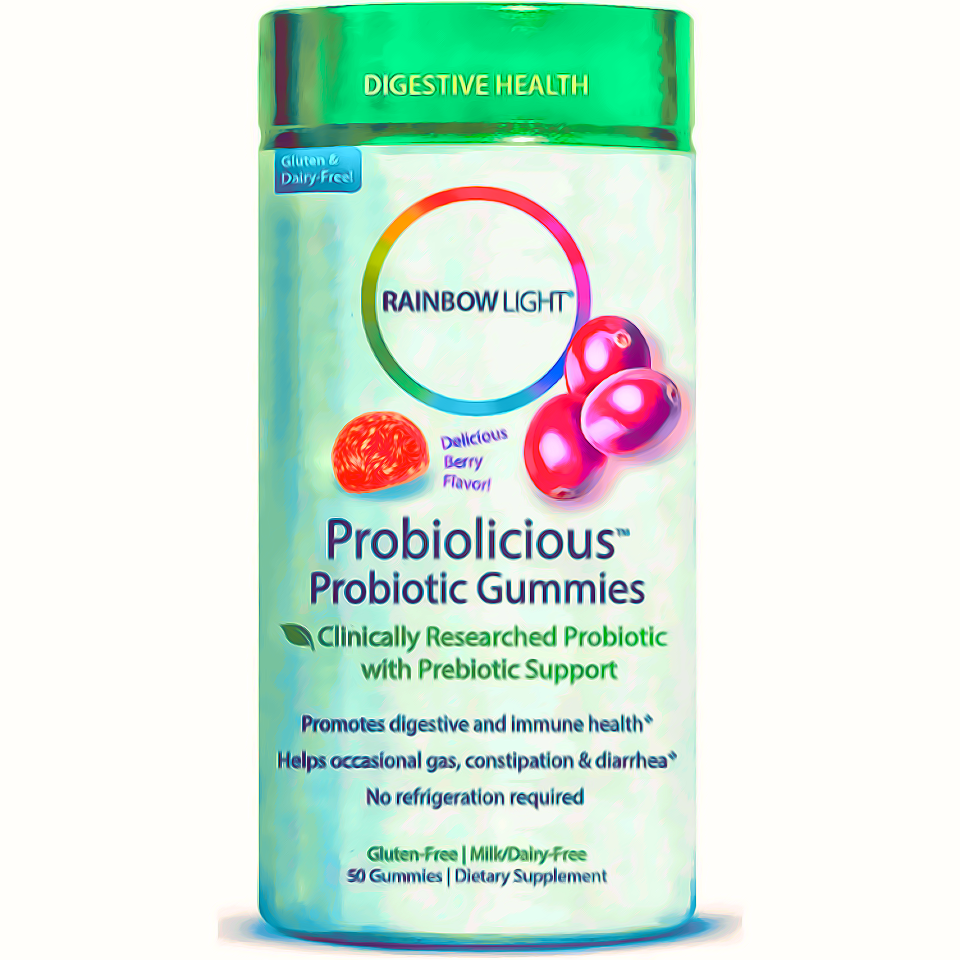
Rainbow Light Probiolicious Plus Gummies
Great for Supporting Digestion and Everyday Health
Great Things About This Product
Rainbow Light Probiolicious Plus Gummies is great because it is a natural berry-flavored probiotic gummy that delivers 2 billion CFUs of Bacillus coagulans to support digestion and everyday health.
This product is also vegan and gluten-free, which makes it gentle on the stomach and digestive system. In addition, this product is made with no artificial preservatives, colors, flavors, or sweeteners.
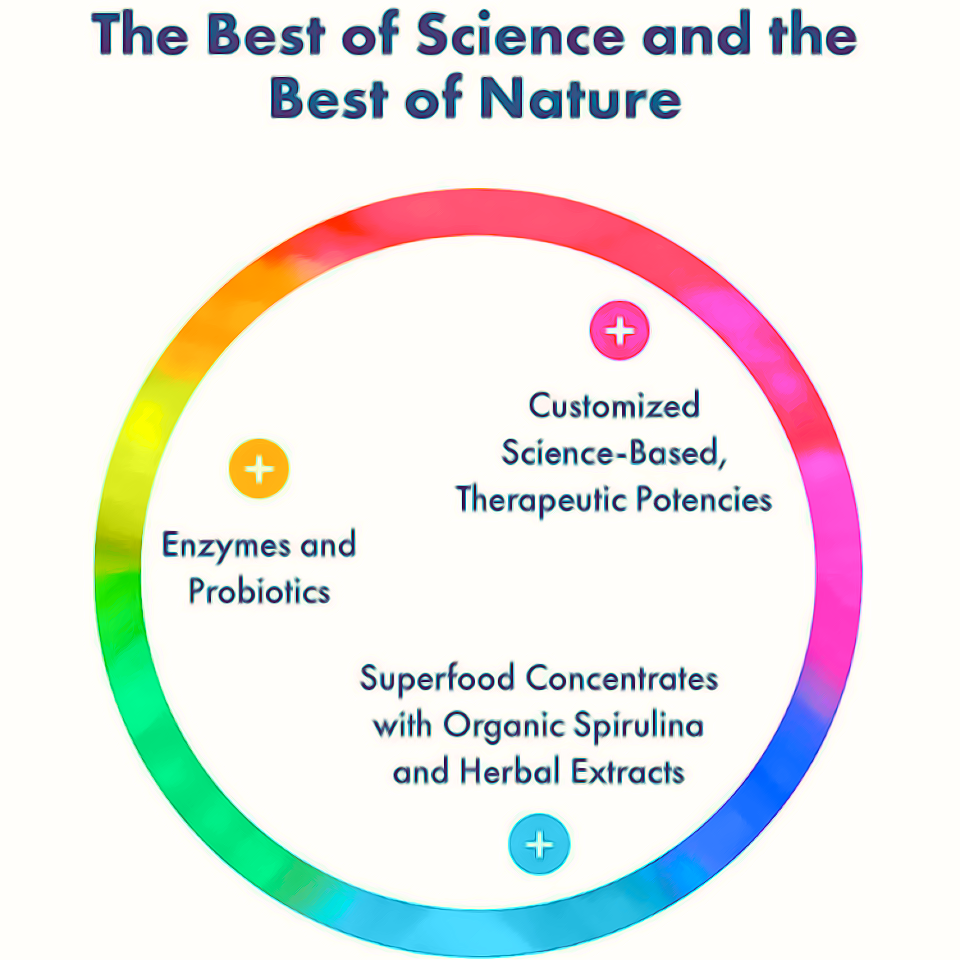
Good Things to Know About This Product
Rainbow Light Probiolicious supports whole body health. Just take 2 probiotic gummies daily to support immune and colon health, and will also help with occasional gas, constipation and bloating.
Pros
- Gluten-free
- No artificial flavors
Cons
- Expensive
Great Things About Florastor Daily Probiotic Supplement
This product is great for kids because it is a daily probiotic supplement that helps maintain healthy digestion while keeping their taste buds happy.
Florastor helps increase the natural flora in their digestive tract and supports overall health by strengthening digestive balance, stimulating the immune system, and breaking down carbohydrates and fibers to aid digestion.
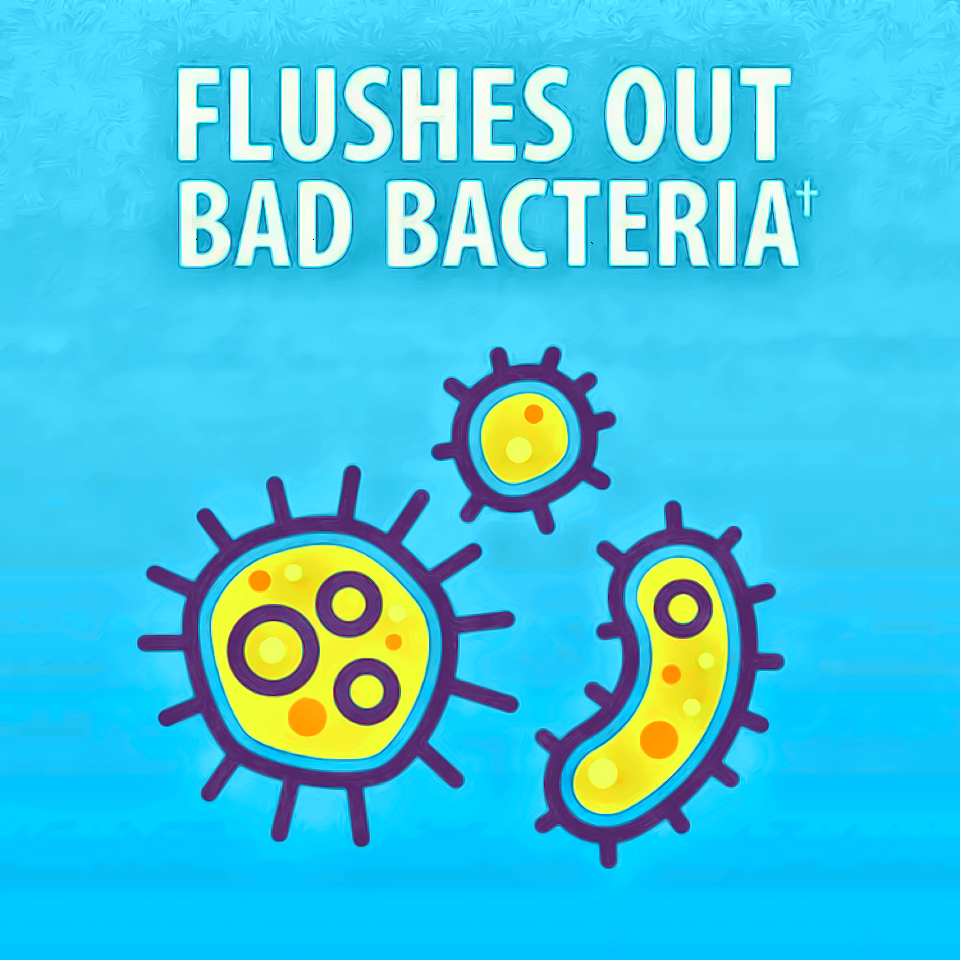
Good Things to Know
The Florastor Probiotic Capsules are also vegetarian, gluten-free, titanium dioxide free, and appropriate for lactose intolerance. In addition, the Florastor Probiotic Capsules are antibiotic-resistant and have a shelf life of 3 years.
Pros
- Suitable for children 2 months and older
- Shelf-stable
Cons
- It contains artificial flavors
- Single-strain
- Costly
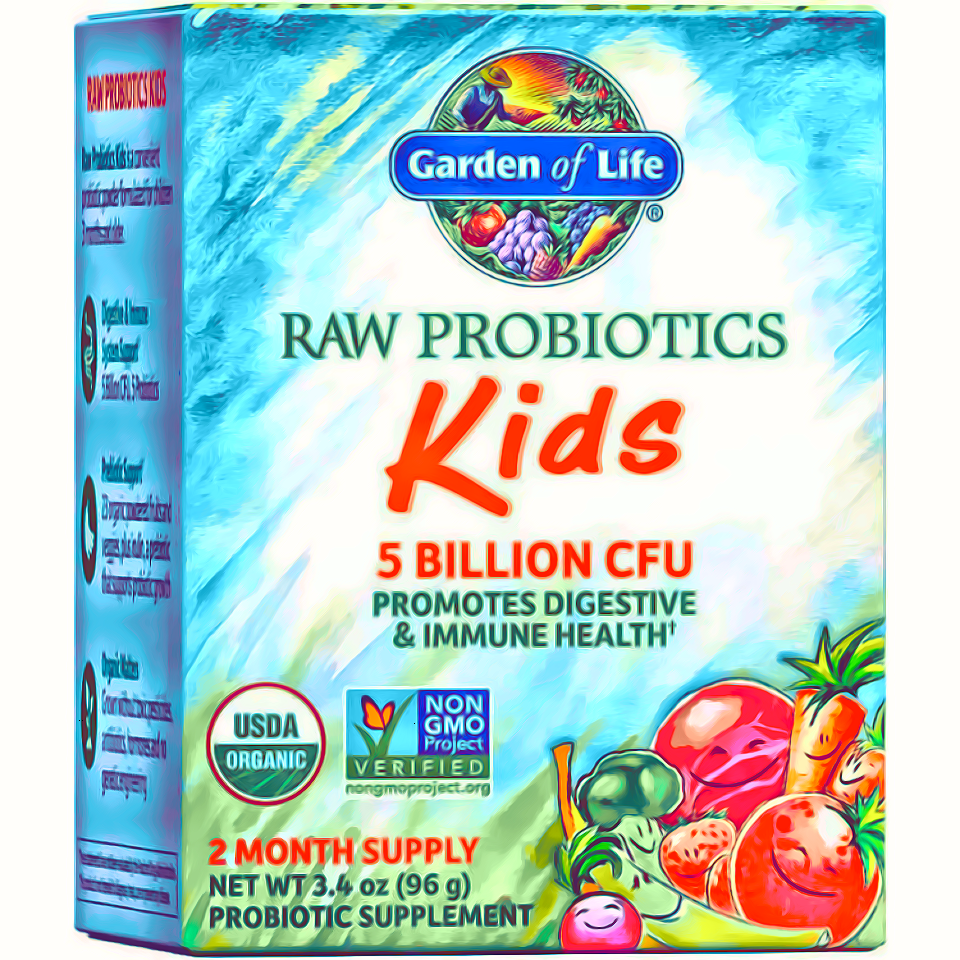
Garden of Life Raw Acidophilus and Bifidobacteria
Contains 5 Billion CFU from 5 Different Probiotic Strains
Great Things About Garden of Life Raw Acidophilus and Bifidobacteria
It contains 5 Billion CFU from 5 different probiotic strains that have been clinically studied for children. It also has a prebiotic blend of 23 organic and raw fruits and vegetables, plus inulin to support the growth of good bacteria in the gut.
It's easy to use - simply mix it into breast milk, water, infant formula, milk, juice, or any soft food. It's also third-party certified USDA organic, non-GMO, NSF gluten-free, vegan, and sugar-free.
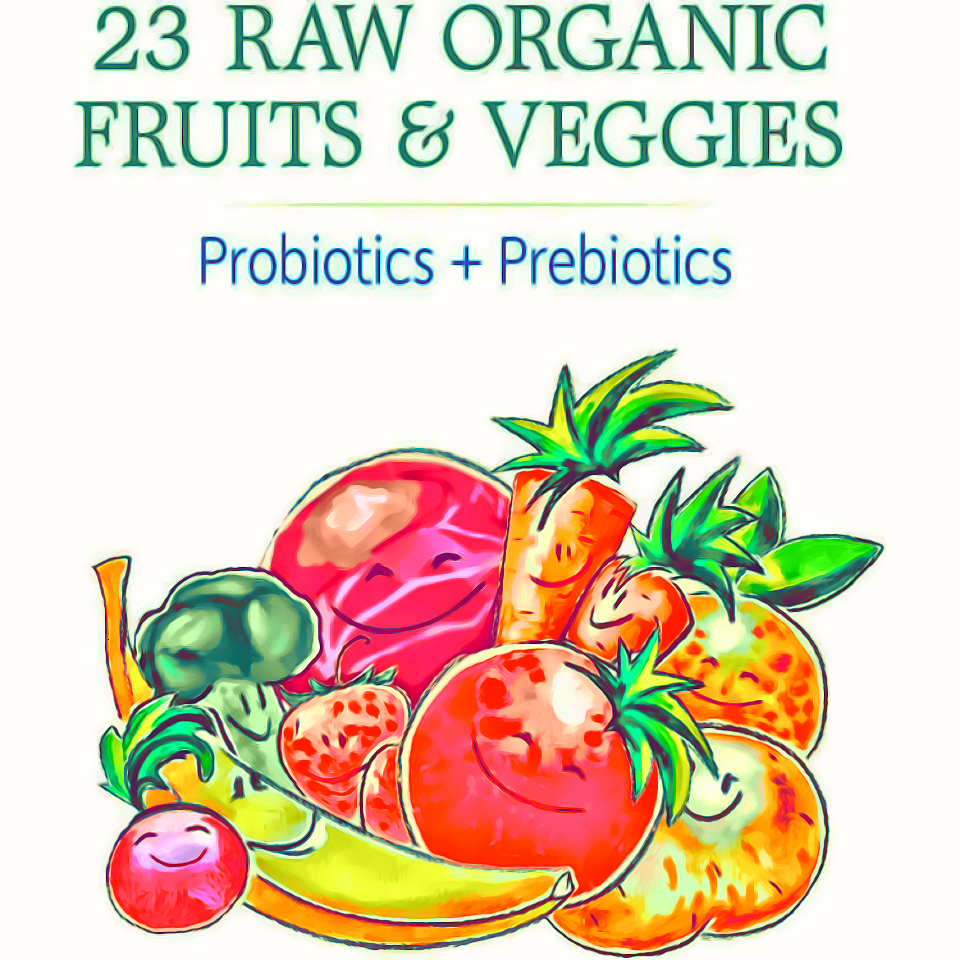
Good Things to Know
Garden new life offers truly clean products you can trust. The third-party certification process ensures that we get all the good stuff from our foods without any of the bad stuff.
Pros
- Gluten-free certified
- Certified vegan
- Certified organic
- This product contains a blend of raw fruits and vegetables
Cons
- Costly
- Refrigeration is required
Buyers guide
It is no secret that probiotics are becoming more and more popular as people become increasingly interested in gut health.
Probiotics are live microorganisms that, when consumed, provide a variety of health benefits. They can help improve digestive function, boost immunity, and even reduce the risk of some chronic diseases. Not surprisingly, probiotics are also becoming popular among kids. As parents become more aware of the potential benefits of probiotics, they are increasingly looking for ways to incorporate them into their children's diets.
However, with so many different probiotic products on the market, it can be difficult to know which one is right for your child. To help you make an informed decision, we have put together a buyer's guide for the best probiotic for kids.
When choosing a probiotic for your child, it is important to look for one that contains live and active cultures. These are the microorganisms that provide health benefits. It is also a good idea to choose a product that contains multiple strains of bacteria, as this will provide greater benefit than a single-strain product.
Finally, be sure to check the expiration date before purchasing a probiotic, as live cultures can lose their potency over time.
If you are looking for a quality probiotic for your child, consider one of the products on our list. They are all from reputable brands with long-standing histories of producing quality probiotics.
What are some tips on how to choose the right probiotic for your child?
When choosing a probiotic for your child, it is important to consider the type of probiotic, the delivery method, and the specific needs of your child. The best probiotic supplement for kids is one that is tailored to their individual needs.
Some tips on how to choose the right probiotic for your child include:
- Considering the type of probiotic. There are many different types of probiotics available, so it is important to choose one that is right for your child. Some common types of probiotics include Lactobacillus, Bifidobacterium, and Saccharomyces.
- Considering the delivery method. Probiotics are available in many different forms, such as capsules, probiotic powder, and liquids. It is important to choose a delivery method that is convenient for you and your child.
- Considering the specific needs of your child. Probiotics can be helpful for children who have gastrointestinal issues, such as constipation, diarrhea, and irritable bowel syndrome. Probiotics can also be helpful for children who have allergies or are taking antibiotics.
- When choosing a probiotic for your child, it is important to talk to your child's doctor to ensure that you are choosing the right probiotic for their individual needs.
Potential risks and side effects of giving kids probiotics
Probiotics are generally considered safe for children. However, there is a small risk of side effects, such as gas and bloating. Probiotics may also interact with certain medications, so it is important to talk to your child's doctor before giving them probiotics.
Probiotic for Kids FAQ’s
Parents are always looking for ways to improve their children's health, but there is a lot of conflicting information out there about probiotics.
It can be hard to know which probiotics are right for your child and how much to give them.
We've compiled the most frequently asked questions about probiotics for kids so you can make the best decision for your family.
What Are the Benefits of Probiotics for Kids?
Probiotics are live microorganisms that offer health benefits when consumed. There are certain probiotic foods, such as yogurt, or taken as supplements.
Probiotics are also sometimes used to treat specific medical conditions. The exact mechanisms by which probiotics work are still being studied, but it is thought that they may help to restore the balance of good and bad bacteria in the gut, bolster the immune system, and reduce inflammation.
For kids, probiotics may offer several potential benefits. They may help to relieve symptoms of diarrhea, eczema, and colic, and may also reduce the risk of developing allergies and respiratory infections.
Probiotics may also boost cognitive function and reduce levels of anxiety and depression. While more research is needed to confirm these potential benefits, probiotics are generally considered safe for kids and may be worth considering as part of a healthy diet.
Should kids take probiotics or prebiotics?
There is some evidence that probiotics can help kids with certain health issues, such as diarrhea and recurrent ear infections.
There is also some evidence that prebiotics — which are nutrients that feed the good bacteria in the gut — may be helpful for kids who have problems with constipation, gas, or bloating. They also support a healthy microbiome. But more research is needed to know for sure whether probiotics or prebiotics are helpful for kids overall.
That said, many pediatricians recommend that all kids take a daily probiotic supplement, even if they're not having any specific health problems. This is because there's growing evidence that good gut bacteria may play a role in helping to prevent diseases like obesity, asthma, and cancer later in life.
How much probiotics should a kid take?
It's recommended that kids take probiotics starting at 6 months old and continuing until they reach 3 years old. Probiotics can be found in yogurt, kefir, and other fermented foods.
Probiotics are beneficial bacteria that line the intestinal tract and support digestive health. They help to break down food, absorb nutrients, and fight off harmful bacteria and infections.
Kids need probiotics for the proper development of the immune system, as well as for digestive health.
Who should not take probiotics?
Probiotics should not be taken by people with weakened immune systems. For example, people who are receiving radiation or chemotherapy for cancer, or people who have had surgery to remove their spleen, are not recommended to take probiotics.
Additionally, people with a history of bowel obstruction should speak to a healthcare professional before taking probiotics.
What are the signs you need probiotics?
There are a few key signs that you may need probiotics. Probiotics can help to improve gut health and enhance skin health. which can in turn lead to other benefits such as improved digestion, better absorption of nutrients, and reduced inflammation.
If you experience any of the following symptoms, you may benefit from probiotic supplementation: bloating, constipation, diarrhea, flatulence, indigestion, and stomach cramps.
Additionally, those who frequently suffer from colds or other infections may also want to consider taking probiotics regularly.
What are the signs that probiotics are working?
The most common signs that probiotics are working are an overall feeling of improved health, a decrease in digestive problems such as gas, bloating, and constipation, and sometimes a change in the frequency or consistency of bowel movements.
Other possible signs that probiotics are working include clearer skin, increased energy levels, and better sleep.
Keep in mind that everyone's body is different and will respond differently to probiotics; so if you don't experience any of the above benefits, don't give up on them just yet. Probiotics can take time to build up in your system and start working their magic.
Is it better to take probiotics in the morning or at night?
There is no right or wrong time to take probiotics, as each person's body will metabolize and absorb the probiotics differently. However, many people find that taking probiotics in the morning allows them to start their day with a burst of energy.
That said, some people prefer to take probiotics at night so that they can help promote a good night's sleep.
Ultimately, it is up to each individual to experiment with different timing schedules to see which works best for them.
Is it safe to take probiotics every day?
The jury is still out on probiotics, but there is some evidence that they might be helpful in certain cases. For example, probiotics have been shown to help with diarrhea and gut health.
That said, it's always a good idea to speak with your doctor before starting any new supplement, including probiotics. Your doctor can help you determine if probiotics are the right choice for you and can also monitor your health if you decide to take them.
How quickly will probiotics work?
Probiotics work very quickly if they are the right type of probiotic and you are taking them for a specific reason. If you have just finished a course of antibiotics, for example, then you would want to take probiotics to replenish the gut flora that was killed off by the antibiotics.
If you are taking probiotics as a general health supplement, then it may take a little longer for them to work. Probiotics help to improve digestion, which in turn helps with the absorption of nutrients from food. They also help to increase the good bacteria for the healthy gut, which can help boost your immune system.
How long should you take probiotics?
It depends on the probiotic. Some can be taken for a few days, others for a few weeks, and still others for a few months.
It's important to read the label on the probiotic to determine how long it should be taken. And it's also important to follow the dosage instructions on the label.
Probiotics are living organisms, so they need to be stored in a cool, dry place and used before their expiration date.
What happens when you stop taking probiotics?
When you stop taking probiotics, the bad bacteria in your gut can quickly overpopulate and take over. This can cause some problems, such as diarrhea, constipation, abdominal pain, and vomiting. It can also lead to more serious conditions like Crohn's disease and ulcerative colitis.
It's important to note that not all probiotics are the same. Some are better at colonizing the gut than others, so it's important to choose a high-quality probiotic supplement if you're planning on stopping treatment. And always talk to your doctor before stopping any kind of medication or supplement.
What foods are high in probiotics?
Probiotics are bacteria that line your digestive tract and support your body's natural defenses.
They are found in some foods, such as yogurt, kefir, and sauerkraut. Fermented dairy products, such as yogurt and kefir, are the best sources of probiotics. Other good sources include tempeh, miso, natto, and kimchi.
Some people also take probiotic supplements to get their daily dose of probiotics. However, not all probiotic supplements are created equal. So it's important to choose a high-quality probiotic supplement that has been tested for purity and potency.
Can probiotic supplements cause weight gain?
There is some evidence that suggests that taking probiotics can cause weight gain in some people. However, it's important to note that the research on this topic is still relatively new and more studies are needed to determine whether this is actually the case.
One potential explanation for why probiotics might lead to weight gain is that they can alter the balance of gut bacteria in a way that makes it easier for the body to store fat. Additionally, probiotics may also have an effect on the hormones involved in hunger and satiety, which could lead to weight gain.
At this point, it's too early to say for sure whether or not probiotics cause weight gain.
Is honey a probiotic?
Yes, honey is a probiotic. It contains a variety of organic acids and hydrogen peroxide that act as probiotics.
Honey has been used as a traditional remedy for many years to treat various gastrointestinal problems such as constipation, diarrhea, and indigestion. It's also been shown to be effective in treating other conditions such as sinus infections and wounds. Honey is a rich source of antioxidants and has anti-inflammatory properties that make it beneficial for overall health.
Does apple cider vinegar help gut bacteria?
There is some evidence that apple cider vinegar can help with gut bacteria, but more research is needed. Apple cider vinegar is a type of vinegar made from apples. It contains a compound called acetic acid, which has been shown to kill bad bacteria and improve gut health in some animal studies.
Apple cider vinegar may also help increase the number of good bacteria in the gut. This is because apple cider vinegar contains prebiotics, which is a type of fiber that helps feed the good bacteria in your gut. Prebiotics can be found in other foods too, such as garlic, onions, and leeks.
Is peanut butter good for gut health?
There is some evidence that peanut butter may be beneficial for gut health. For example, peanuts are a good source of fiber, which helps promote gut health.
Additionally, some studies have shown that peanut butter may help to increase the number of healthy bacteria in the gut. However, more research is needed to confirm these findings.
Best Probiotics for Kids
It can be tough to know which probiotic is best for your child, especially when there are so many on the market.
We’ve done the hard work for you and found the best probiotics based on reviews from parents just like you. For your convenience you will find a list below of the probiotics we covered from above. Check them out and see what probiotic is right for your family.
Thank you for reading and happy health journey!
NOW Supplements, BerryDophilus
Strain-Verified Product with 10 Probiotic Strands
Smartypants Kids Probiotic Immunity Gummies
Great Kids Prebiotic and Probiotic
Culturelle Kids Packets Daily Probiotic Supplement
Great for Reducing Occasional Tummy Troubles
OLLY Kids Multivitamin + Probiotic Gummy
Great Multivitamin + Probiotic all in One!
Renew Life Probiotics for Kids
Contains 3 Billion Cultures and 6 Specially Selected Strains!
Rainbow Light Probiolicious Plus Gummies
Great for Supporting Digestion and Everyday Health
Florastor Daily Probiotic Supplement
Helps Strengthen Digestive Balance
Garden of Life Raw Acidophilus and Bifidobacteria
Contains 5 Billion CFU from 5 Different Probiotic Strains
We hope you find your next amazing thing from the report above! Each product was independently selected by our editors after reading through many research and reviews to come up with the best selection. RockinReports may collect a share of sales or other compensation from the links on this page if you decide to buy something (that's how we stay in business). Thanks for reading and enjoy finding your next amazing thing!





